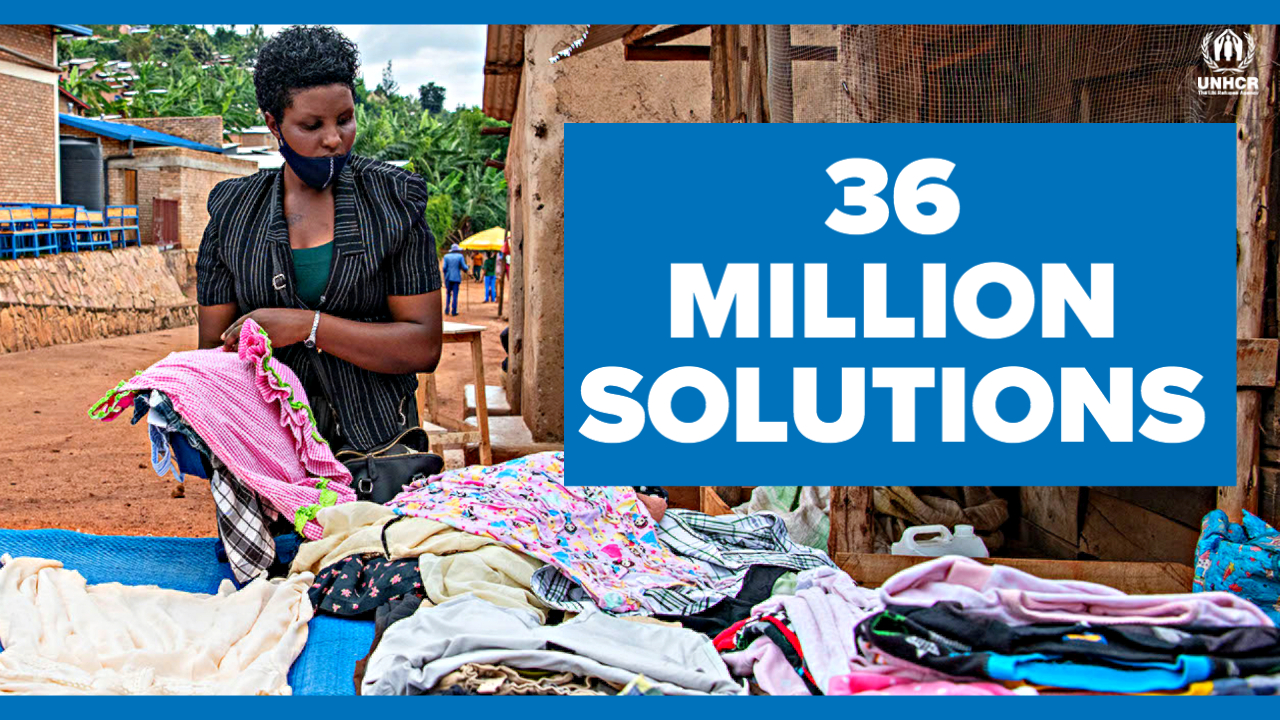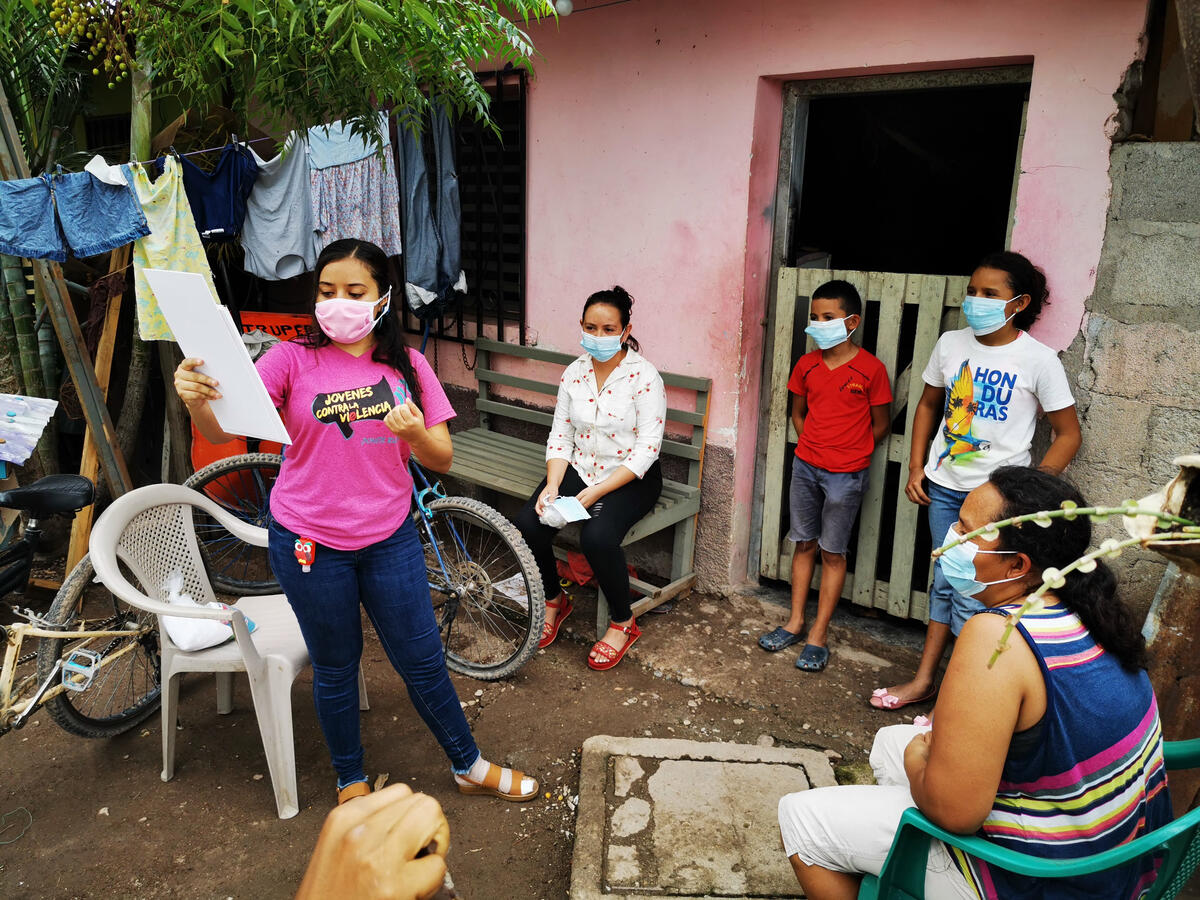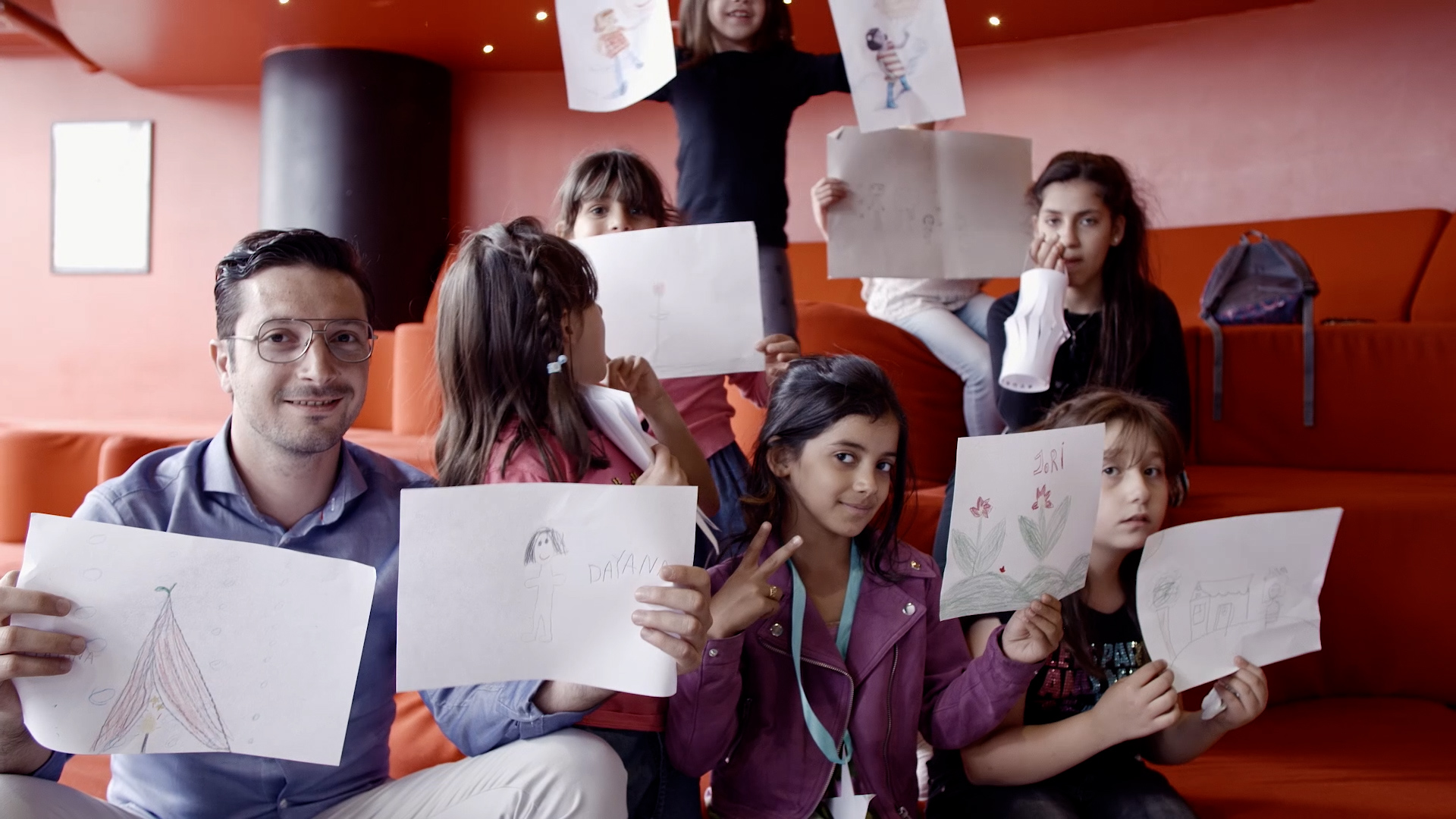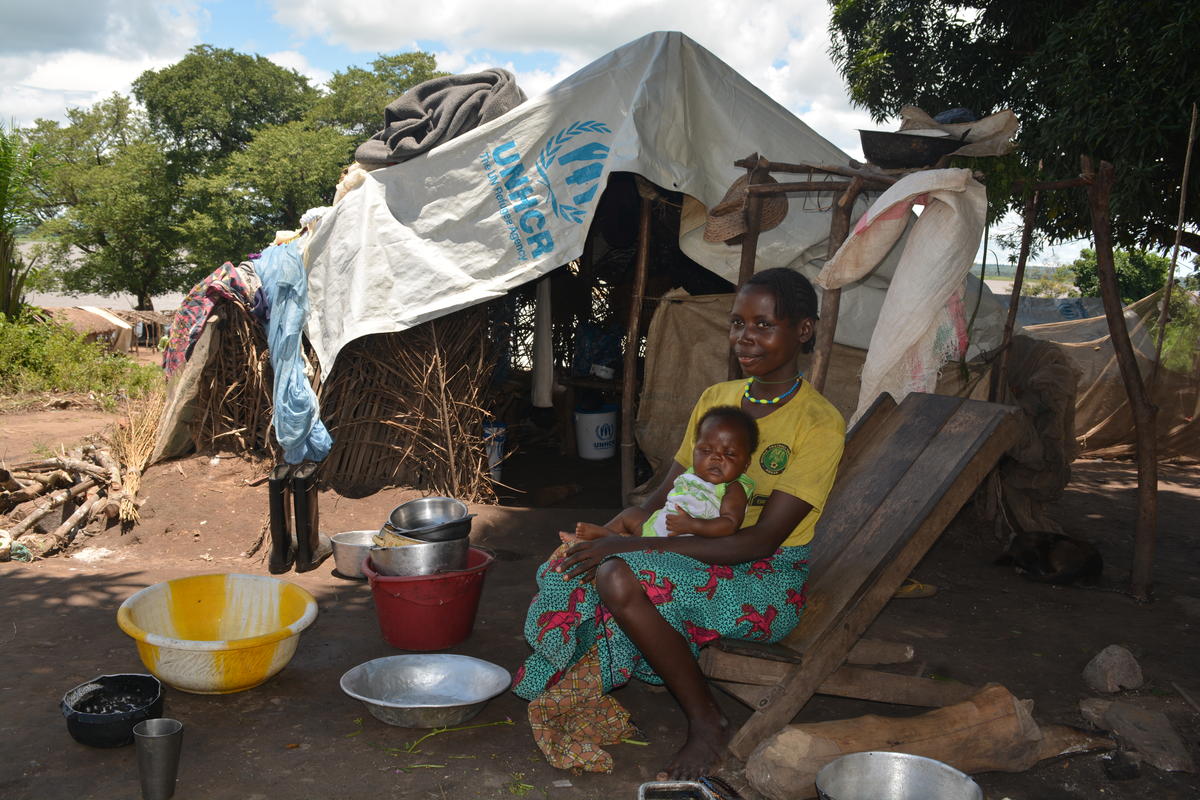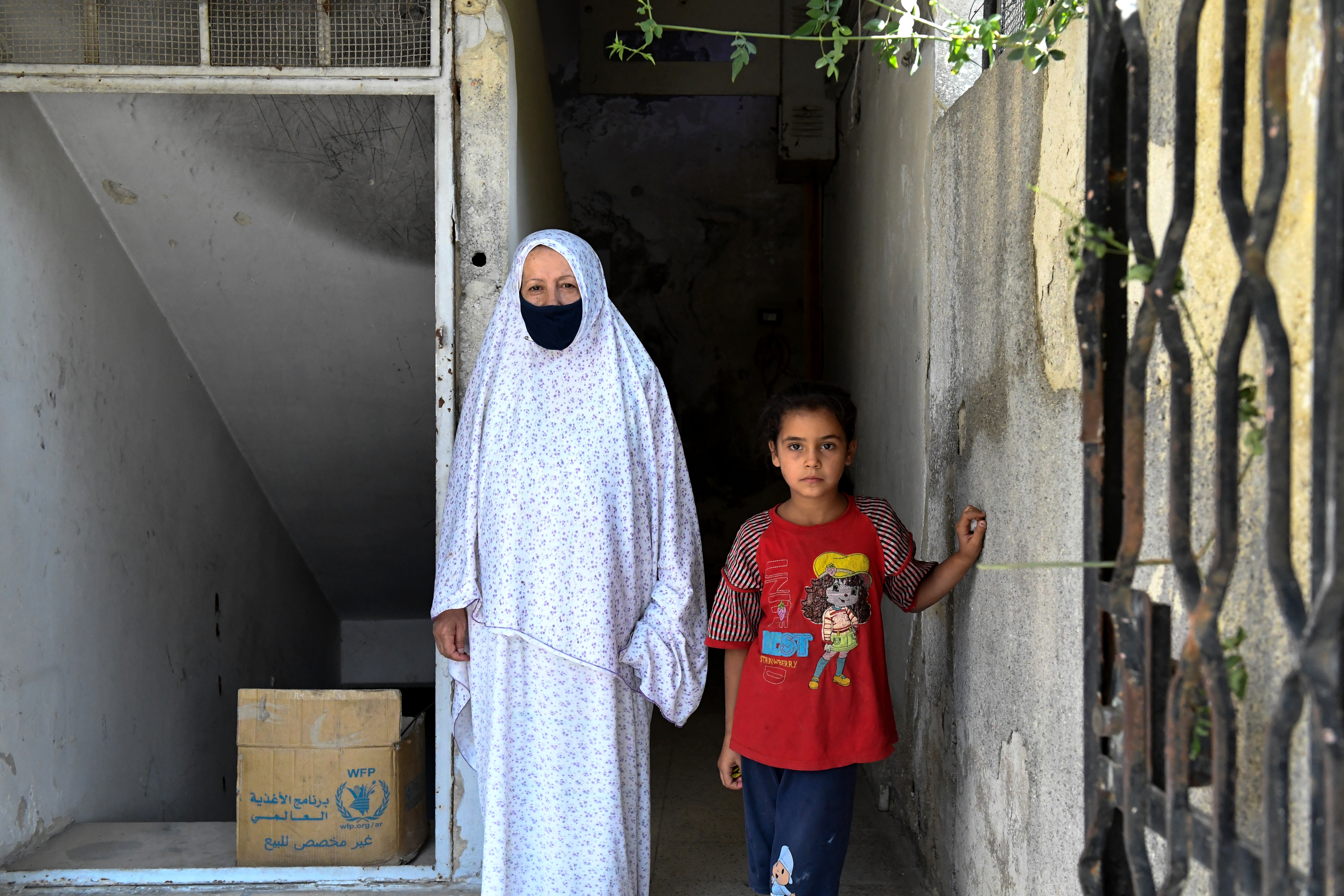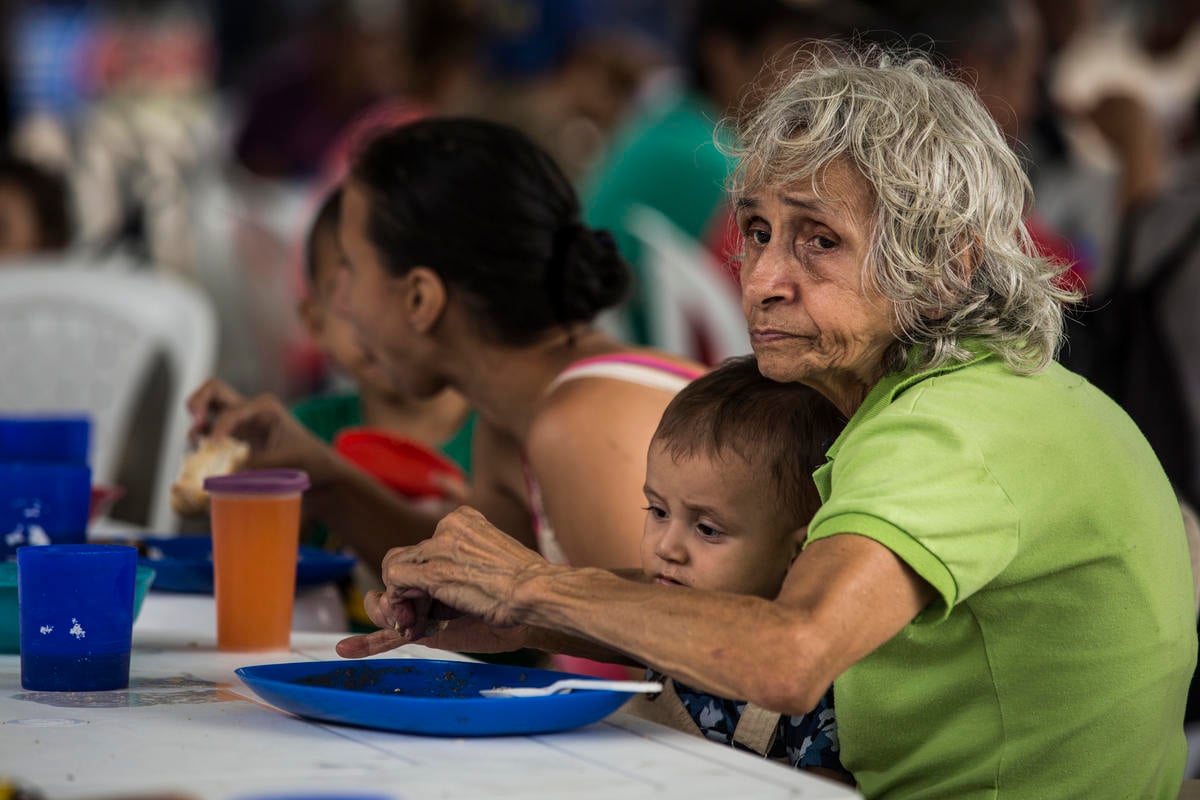UNHCR "cannot do it alone", top official tells NGOs
UNHCR "cannot do it alone", top official tells NGOs

GENEVA, Sept 24 (UNHCR) - The UN refugee agency and representatives of more than 150 non-governmental organisations (NGOs) from some 65 countries opened three days of annual consultations today with a tribute to dozens of humanitarian workers who were killed over the past year.
Opening the annual "Pre-ExCom" consultations at Geneva's Palais des Nations, Assistant High Commissioner Kamel Morjane noted that the past 12 months had been painful for the entire humanitarian community, culminating in the August 19 attack on the UN compound in Baghdad that left 22 people dead.
"As the UNHCR representative in Baghdad said after the August 19 bombing, the danger we used to fear in Iraq was being in the wrong place at the wrong time. Now, the wrong place is everywhere, and the wrong time is all the time," Morjane said.
But even before August 19, he said, there were other colleagues who had paid with their lives or who remain missing. Among them are Arjan Ekel of MSF (Médecins Sans Frontières), who was abducted a year ago in Daghestan and has not been heard from since. Other humanitarian workers were killed in Liberia, Iraq, Afghanistan and Eritrea.
"I have attended too many memorial services this year," the Assistant High Commissioner said. "I have grieved for those I knew well, and less well. We cannot forget ... that the fulfilment of our noble humanitarian mandate has in all too many cases demanded the ultimate sacrifice."
The NGO consultations are held yearly on the eve of the week-long meeting of UNHCR's governing body, the 64-member Executive Committee (ExCom), which starts next Monday.
Morjane told the NGO gathering that to honour the memories of those who died, "we should continue to serve everywhere they have sacrificed their lives."
"But we also have to take all necessary precautions to limit the risk of new losses," he said. "Unfortunately, we cannot guarantee that."
The August 19 Baghdad attack showed that efforts to improve security must go beyond "conventional" defensive measures and address the wider political causes of insecurity, said Morjane, who has responsibility for UNHCR field operations worldwide.
"In the longer term," he said, "this means winning back international confidence in the impartiality and humanitarian role of the United Nations and its non-governmental partners."
UNHCR is reviewing its security policy, "taking into account the fact that the humanitarian community this time is clearly being directly targeted," he said.
Noting that NGOs are UNHCR's "lifeblood," the Assistant High Commissioner declared that the refugee agency "cannot do it alone." Worldwide, UNHCR works with more than 500 NGOs who carry out many of the day-to-day activities needed to provide protection and assistance to more than 20 million refugees and others of concern.
Morjane gave a brief overview of some of UNHCR's current major operations, including in Afghanistan, where returns of refugees and displaced people totalled more than 2 million last year and over 500,000 this year.
In Liberia, the departure of former President Charles Taylor and the expected deployment of 15,000 peacekeepers are already beginning to have a positive effect. UNHCR is working closely with NGOs like the International Committee of the Red Cross (ICRC) and the UN World Food Programme (WFP) to assist refugees and displaced Liberians. Nevertheless, Morjane said, the security and humanitarian situation inside the war-ravaged nation remains a serious concern.

A "worrying new emergency" is currently unfolding in Chad, where some 65,000 Sudanese have fled in recent months. A UNHCR emergency team is now on the ground setting up assistance programmes for the refugees with the help of MSF.
In Angola, meanwhile, peace is taking root after 27 years of war and more than 160,000 refugees have so far gone home - many of them on their own. Another 240,000 remain outside the country, but many continue going home with UNHCR assistance.
Morjane also cited the protracted plight of some 100,000 Bhutanese who have been in camps in Nepal for over 10 years with few solutions in sight. Declaring "we need to find a solution," he said UNHCR was pursuing a phasing-out strategy that would include self-reliance projects in Nepal, limited resettlement possibilities for vulnerable cases, and limited assistance for those who wished to go back to Bhutan. He noted, however, that UNHCR would not promote voluntary repatriation because the agency has no access to Bhutan.


